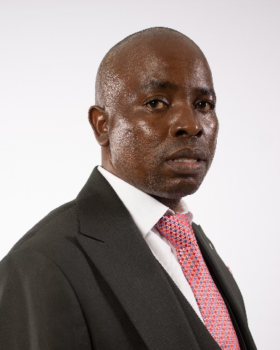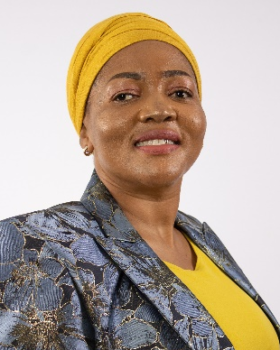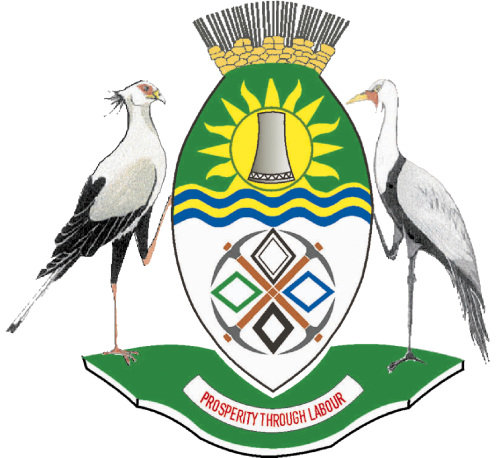Functions and Powers of an Executive Mayor
An executive mayor is entitled to receive reports from committees of the municipal council and to forward these reports together with a recommendation to the council when the matter cannot be disposed of by the executive mayor in terms of the executive mayor’s delegated powers.
- Identify the needs of the municipality.
- Review and evaluate those needs in order of priority.
- Recommend to the municipal council strategies, programmed and services to address priority needs through the integrated development plan, and the estimates of revenue and expenditure. taking into account any applicable national and provincial development plans: and
- Recommend or determine the best way. including partnership and other 20 approaches. to deliver those strategies: programmes and services to the maximum benefit of the community.
- Identify and develop criteria in terms of which progress in the implementation of the strategies. programs and services referred to in subsection (2)(c) can 25 be evaluated. including key performance indicators which are specific to the municipality and common to local government in general
- Evaluate progress against the key performance indicators.
- Review the performance of the municipality in order to improve:
- The economy, efficiency and effectiveness of the municipality,
- The efficiency of credit control and revenue and debt collection services, and
- The implementation of the municipality by-laws.
- Monitor the management of the municipality’s administration in accordance with the directions of the municipal council.
- Oversee the provision of services to communities in the municipality in a sustainable manner.
- Perform such duties and exercise such powers as the council may delegate to the executive mayor in terms of section 32.
- Annually report on the involvement of communities and community organisations in the affairs of the municipality.
- Ensure that regard is given to public views and report on the effect of consultation on the decisions of the council.
- An executive mayor must perform a ceremonial role as the municipal council may determine.
- An executive mayor must report to the municipal council on all decisions taken by the executive mayor.
- The deputy executive mayor of a municipality exercises the powers and performs the duties of the executive mayor if the executive mayor is absent or not available or if the office of the executive mayor is vacant.
- If the executive mayor is absent or not available and the municipality does not have a deputy executive mayor, or the deputy executive mayor is also absent or not available, the council must designate a councillor to act as executive mayor.

Meet the Chief Whip
The role of the chief whip is to manage other members of the Council and of the party to ensure that its members maintain discipline and good conduct and specifically seeks to ensure that party members speak with one voice on matters of policy and strategies.
Furthermore is to redefine, given that municipalities perform a dual role, encompassing both the executive and legislative domains.
The Council Chief Whip’s role spans both the political and administrative domains of the Council, with the emphasis on the political aspect. A Council Chief Whip is to ensure that relationships are constructive and focused on the key issues at hand.

Functions of the Speaker
- Presides at meetings of the council
- Performs the duties and exercises the powers delegated to the speaker in terms of section 59 of the Local Government: Municipal Systems Act, 2000 (Act 32 of 2000); [Para. (b,) amended by s. 14 (a) of Act 51 of 2002,]
- Must ensure that the council meets at least quarterly
- Must maintain order during meetings
- Must ensure compliance in the council and council committees with the Code of Conduct set out in Schedule 1 to the Local Government: Municipal Systems Act, 2000 (Act 32 of 2000); and [Para. (e) amended by s. 14 (b) of Act 51 of 2002.]
- Must ensure that council meetings are conducted in accordance with the rules and orders of the council.






Section 79 Committees: Composition
(Click on the relevant green bar to view more)
2.1 Infrastructure and Service Delivery, Water, Sanitation, Electricity, Roads and Maintenance:
|
2.2 Social Services, Disaster Management, Youth, Women, The Disabled, Sport, Arts & Culture, Health and Education:
|
2.3 Corporate Services Human Resources, Legal Services and Human Resources Development:
|
2.4 Development, Planning, Human Settlement, Public Safety and Transport:
|
2.5 Finance, Risk and Audit:
|
2.6 Local Economic Development, Human Settlement and Tourism:
|
2.7 Municipal Public Accounts Committee (MPAC):
|
2.8 Rules and Ethics Committee:
|
3. THAT the following functions and quorums be determined in respect of the various SECTION 79 Committees:
3.1 Infrastructure Development and Service Delivery:
-
- To advise Council on infrastructure development and service delivery issues; and
- The quorum of the Committee is 50% plus 1.
3.2 Transport, Roads and Public Safety:
-
- To advise Council on roads, transport and public safety issues; and
- The quorum of the Committee is 50% plus 1.
3.3 Finance:
-
- To advise Council on financial issues; and
- The quorum of the Committee is 50% plus 1.
3.4 Administration and Human Resources:
-
- To advise Council on administration and human resources issues; and
- The quorum of the Committee is 50% plus 1.
3.5 Local Economic Development:
-
- To advise Council on local economic development issues; and
- The quorum of the Committee is 50% plus 1.
3.6 Social, Youth and Women Development:
-
- To advise Council on social, youth and women development matters; and
- The quorum of the Committee is 50% plus 1.
3.7 Geographical Names:
-
- To advise Council on renaming of towns, townships etc.
- The quorum of the Committee is determined as 50% plus 1.
Table 1: COMPOSITION AND PROPOSED TERMS OF REFERENCE FOR IDP/PMS STRUCTURES
| Structure | Description | Composition | Terms of reference |
| IDP/PMS Forum | This is a political structure which institutionalizes and guarantees representative participation in the IDP Processes. |
Chaired by the Executive Mayor. Comprises of:
Labour;
|
|
Proposed issues to be considered in the Code of Conduct for the
IDP/PMS Representative Forum:
The code of conduct would regulate issues such as:
• Understanding by members of their role as representatives of their constituencies
• Feedback to constituents
•Required majority for approval
Resolved:
- THAT a Rules and Ethics Committee be established with the following composition:
-
- Clr G T Mthimunye as Chairperson
- Clr S K Mashilo
- Clr J C Tshabalala – ANC
- Clr R E Cronje – DA
- Clr D D E Mdluli – PAC
- Clr T Maseko – MMC Administration & Human Resource
- Clr G T Mthimunye as Chairperson
2. THAT the Rules and Ethics Committee advise Council on the interpretation of any decision made in terms of Council’s Standing Rules and Orders and the interpretation and application of the Code of Conduct applicable to Councillors.
3. THAT the quorum of the Rules and Ethics Committee be determined as 50% plus 1.


